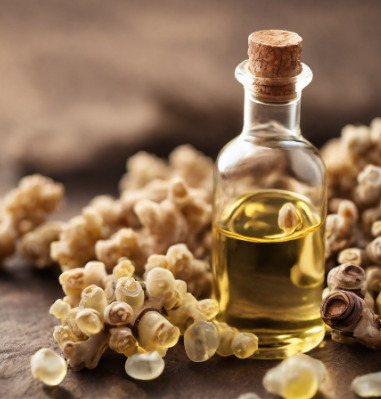5 Best Oils for Nerve Damage
Are you looking for gentle relief from painful neuropathy symptoms? If yes, then essential oils are about to become your new ally.
For years essential oils have been used to treat a wide variety of health conditions. But the new buzz in the field of neuropathy is how well they deal with nerve pain.
When massaged into the skin, their anti-inflammatory compounds cross the dermis and relax tense nerve fibers. They work so well, that they are now considered the cheaper, risk-free, natural approach to harsh prescriptions.
Keep reading to discover the 5 best oils for nerve damage, and how you can apply them.
Contents
what is neuropathy pain
Most of us have heard of neuropathy before, but what does it really mean? Basically, it refers to damaged nerves in the body.
Our nervous system is made up of nerves that connect our brain to everywhere else. The peripheral nervous system runs from our central nervous system out to our arms, legs, organs, etc.


When the nerves in the peripheral system get injured or sick, that’s called neuropathy. It disrupts communication between your nerves and brain.
So what kind of issues does that cause?
Symptoms can vary a lot between people but common ones include tingling, numbness, pain, and weakness. For some, it feels like pins and needles. However, in serious cases, neuropathy can impact daily living.
Believe it or not, over 30% of Americans deal with neuropathy. And about half of all adults with diabetes develop it too, since high blood sugar frequently harms nerves over time.
What Causes Nerve Damage?
So what exactly causes nerve damage in the first place? There are a few potential culprits. Physical injuries, prolonged high blood sugars from conditions like diabetes, vitamin deficiencies, and underlying health issues can all potentially trigger neuropathy.
The good news is there are proactive steps we can take to support healthy nerve function from the inside out. In upcoming articles, I’ll discuss how diet and certain nutrients like antioxidants may help heal and protect our nerves over time.
For now, let’s focus on 5 well-studied essential oils that can be gently incorporated topically. Just as a friendly reminder, check with your healthcare provider before using any natural remedies.
Lavender Essential Oil


If your nerves are acting up with numbness, tingling, or pain, lavender oil may be what you need. Research found that diabetic patients with nerve damage, who regularly massaged with lavender oil, had much less pain within four weeks. The bonus is that this came with no side effects.
Lavender oil also:
- Reduces swelling and irritation of overactive nerves thanks to antioxidants and anti-inflammatories.
- May improve communication between nerves and your brain cells.
- Supports better circulation by widening blood vessels for increased hand and foot blood flow.
How to apply:
Dilute 3 drops in a carrier oil like coconut or olive, then massage into problem areas daily. Patch-test lavender on your skin first just to be safe.
chamomile essential oil for nerve pain


Research hints at chamomiles’ potential for soothing nerve issues. One study looked further into borneol, a compound chamomile shares with lavender. Turns out this may significantly cut pain and irritation linked to nerve conditions.
- Chamomile contains anti-inflammatory and muscle relaxant compounds that soothe irritated nerves and tense muscles.
- It also has sedative and mood-lifting properties that may help take the edge off mentally and emotionally.
How to apply:
Dilute 2-3 drops of chamomile in coconut or argan oil carrier (olive oil is fine too), then give those sore spots a soothing massage. Alternatively, drop some in a warm bath or hot compress – and just let the oils anti-tension magic work its way through you.
frankincense oil for nerve pain


Frankincense oil has a long history of traditional use. Derived from the resin of Boswellia trees, it has been part of Chinese medicine for centuries.
So how does frankincense help neuropathy? Essentially it’s all down to a powerful anti-inflammatory component called Boswellic Acids. When massaged gently mixed with a carrier oil, these compounds seem to soothe oversensitive nerves.
Some key things to know – Boswellic acids work to reduce irritation and swelling at nerve endings when frankincense is applied topically.
frankincense can also:
- Safeguards nerve health through antioxidants that combat oxidative stress and prevent further harm.
- Enhance communication between nerves and brain cells to possibly improve function.
- Dilate blood vessels to boost circulation and deliver more nutrients where needed.
How to apply:
- Breathe in diffused or warm water-blended vapors 10-15 minutes as comfort allows.
- Put 10 drops in your hand, mixed with coconut oil, massage it onto your feet and ankles, and pop on a sock. Do this up to 4 times a day. You should start feeling less pain within 1 to 4 weeks.
Euclyptus Oil


Eucalyptus essential oil is pretty special when it comes to treating neuropathy. It quickly deals with pins and needles, and the anti-inflammatory properties address any pain and irritation.
Bonus points: it even disinfects wounds and can lend a hand in managing diabetes when you take it by mouth.
Some research also suggests eucalyptus oil helps communication between nerves and the brain, which may relieve neuropathic symptoms. It also
- Opens up blood vessels as well, increasing circulation to nerves so they get more oxygen and nutrients. Has an anti-inflammatory and pain-killing effects,
- An ability to boost nerve function and blood flow,
- Shows promise for easing nerve pain symptoms when used as directed
- Protect nerves from damage caused by free radicals.
How to apply:
Dilution: Start by diluting the Eucalyptus oil with a carrier oil, such as coconut oil or olive oil. Aim for a ratio of 2-3 drops of Eucalyptus oil per teaspoon of carrier oil.
Gently apply the diluted Eucalyptus oil mixture to the affected areas, such as hands or feet, where nerve damage is present.
helichrysum oil for nerve pain


Helichrysum is an oil that’s been used for centuries as a natural remedy. Similar to other essential oils that work for nerve pain, Helichrysum seems to relieve pain while tamping down inflammation too.
The main ingredient, called Nerol, plays a key role – it acts as a guard for your nerves, helping them heal over time. Nerol may also calm nerve-related spasms.
Research suggests its antioxidant properties inhibit inflammatory enzymes and scavenge free radicals, addressing the root cause of nerve pain.
- This essential oil has garnered attention for its purported ability to stimulate the regeneration of damaged nerve tissue.
- Believed to possess anti-inflammatory and analgesic effects
How to apply:
To apply helichrysum oil for nerve pain, you can dilute it with a carrier oil such as coconut or jojoba oil, and massage it gently on the affected area. You can also add a few drops of helichrysum oil to a warm bath, or inhale it using a diffuser or inhaler.
Oils for Nerve Damage – And Ways To Use Them
When it comes to essential oils, there’s no one-size-fits-all method. But if you’re hoping to ease neuropathy pain specifically, some approaches seem to work better than others.
Let’s start with inhalation, which can provide surprisingly quick relief. Breathe in those healing vapors through an aromatherapy diffuser or nasal inhaler.
We also talked about using essential oils topically, right on the skin. Now this tactic can be super potent, so make sure any blend you apply is labeled skin-safe.
Thankfully, many oils come in roll-on bottles specially designed for topical use. They mix the good stuff with carrier oils like coconut to keep skin happy while they work their magic. Just roll onto painful areas and let the oils soothe your symptoms into submission.
So at the end of the day, while essential oils offer a variety of usage methods—it’s about finding the one that speaks to your unique nerve-calming needs.










